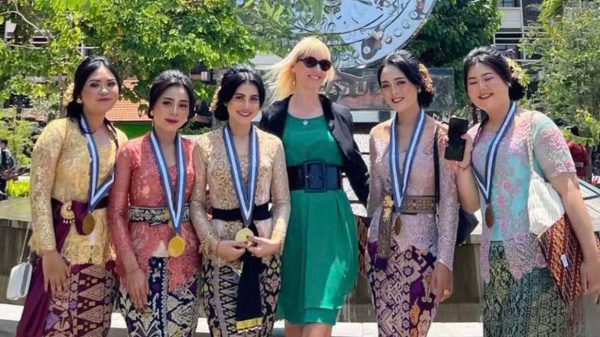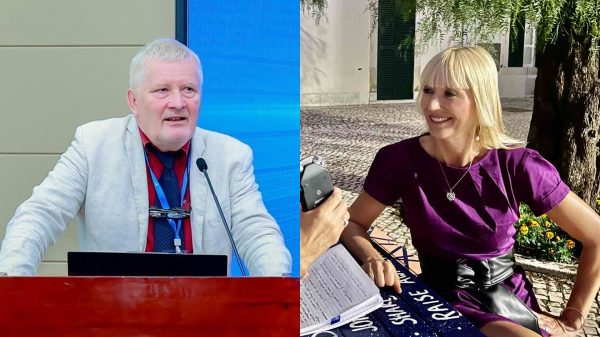
24.08.23
Insight into struggles of Arabic as the mother tongue in Dubai
By Dina Mehmedbegovic-Smith
Image above: Central Dubai sunset
In December 2020 my husband and me found ourselves in Dubai with the plan to spend five days in this amazing city. As the news from London got worse day by day during our stay here, we decided to postpone our return flight. Six weeks later, we are still here, UK is in a very strict lockdown, direct flights from Dubai to London have been banned and very expensive compulsory hotel quarantine has been enforced for anybody returning from a whole list of countries, including the UAE. As the situation in London has deteriorated beyond any imagination, I have embraced this opportunity to live and work in this fast growing multilingual multicultural metropolis with some extraordinary qualities.Based on my insights gained in meetings with school leaders, inspectors, teachers, parents and children, while in Dubai, I have quickly realised that there are serious concerns about the provision, positioning and future of Arabic in education and everyday life in the UAE. Although not unique, this is a very unusual situation since Arabic is the official and mother tongue language of the UAE. There are other Arabic speaking countries also battling marginalisation of Arabic and therefore this is an issue of wider importance in the Gulf region and other world regions, where Arabic is the mother tongue. According to a number of research reports: ‘Arabic tends to be seen as the least liked subject for students in schools, and speaking, reading, and writing in MSA (Modern Standard Arabic) are the last things they want to do, and actually are able to do (AlZeny, 2016; Arabic for Life, 2014, Taha, 2019). Consultation held with a school inspector and an Emirati national revealed that professionals in education fear for the future of Arabic in the UAE. When asked how she perceived the future of Arabic in 20-30 years her reply was: “Don’t make me cry.” All the educators I have consulted are very anxious about the future of Arabic in public and private spheres. In their own families they observe their relatives, now young parents, using English in their family time. Emirati children as young as five fear going to school, because they are aware they cannot function in Arabic, only to find out, to their big relief, that in school everybody speaks English too most of the time.
One of the consulted teachers of Arabic provided insights into observing Emirati parents using English with their children while enjoying family time. This teacher has been using his own initiative to approach parents in such situations and advise them about the importance of using Arabic with their children. He has also been raising awareness amongst students in his school and encouraging them to use Arabic during break times. These examples show – that the struggle is real for every instance of using Arabic in many contexts, where English has silently become a language of choice.
Why is this happening to a language which is considered a world language, ranked 5th in the world with 313 millions of speakers globally?
According to a recent report Taha (2019): “Most children come to school having acquired one variety or a dialect of Arabic, and that is the one they have heard at home from parents and family members. At school, the language of all textbooks, children’s literature, and supposedly instruction is MSA (Modern Standard Arabic), which is the standardized variety of Arabic used in media, literature, and all formal and written communication. Arabic language is usually taught in a rigid way that is focused on grammar and accuracy. This has stifled the ability of Arabic language learners to use it as a tool for science, creative work, modern terminologies, innovative ideas, playfulness, inquiry, and laughter (Taha-Thomure, 2008). Students are consistently corrected on the spot in classrooms and are taught that one cannot make a mistake when reading or writing in MSA, and that invented spelling and making words up are unacceptable practices. The main issues which need addressing are: modernising teaching and learning of Arabic, initial teacher training and professional development for teachers of Arabic; very few private schools, for example, encourage learning Arabic music, or the use of Arabic in newsletters, talent shows, theater, announcements, or artwork displayed. This limits the presence of Arabic language to the classroom only and often sends the message to teachers, parents, and students that Arabic is not an important and fun language.”

View from Burj Kalifa
The leadership of the country, especially Sheikh Mohammed bin Rashid Al Maktoum, the vice president of the UAE and ruler of Dubai, has put a lot of effort and resources into developing policy and initiatives and supporting Ministry of Education in the UAE to improve positioning and provision of Arabic in the education system. The results of these initiatives have been welcomed by the schools and educators. In my consultations with educators of different profiles it has been acknowledged that there are visible improvements in terms of numbers of hours for the provision of Arabic, which is currently four lessons a week in international schools and required standards of Arabic provision: for a school that aims to have overall outstanding status, Arabic provision has to be at least evaluated as good. Currently only one school in Dubai has their provision of Arabic judged by the inspectors as outstanding.
Having schools, universities and public services in one’s mother tongue is taken for granted in most contexts by the most of the world populations. International mother tongue day is an important reminder that every nation has a history of developing their languages and rights to use their languages, and that some communities, even those whose mother tongue is classed as a world language, are still engaged into battles against many overt and covert factors which may lead to language loss at the individual level and language death at the regional/global level, in less or more distant future.
References:
AlZeny, I. (2016). A conversation with one of the world’s most influential Arabic teachers. Retrieved from: https://www.alfanarmedia.org/2016/11/conversation-one-worlds-influential-arabicteachers/
Arabic for Life Report (2014) The UAE Prime minister’s Executive Office
Taha, H. (2019) Arabic Language Education in the UAE: Choosing the Right Drivers. 10.1007/978-981-13-7736-5_5.
About the author
https://ecspm.org/wp-content/uploads/2018/12/Rethinking-Language-Education.pdf
Dina’s work on using autobiographical multimedia classroom approaches to develop intercultural competencies has been published and recognised as good practice by the Department of Education, NALDIC (National Association for Language Development in the Curriculum) and the British Council.

